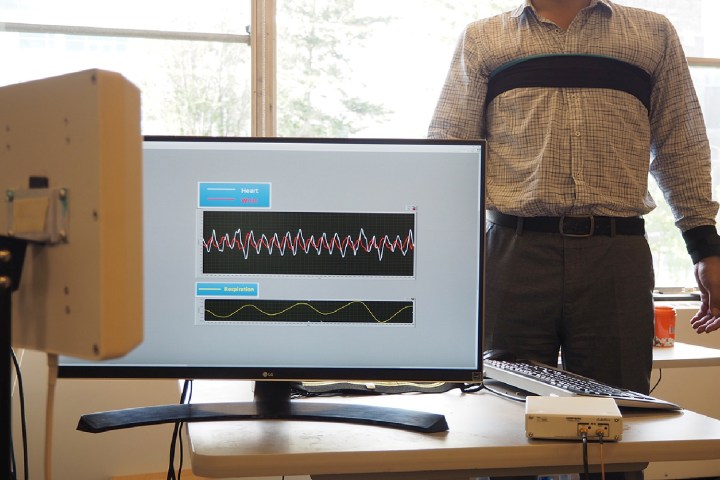
The technology was developed by Edwin Kan, a professor of electrical and computer engineering at Cornell University, and graduate student Xiaonan Hui. The method relies on radio waves and something called near-field coherent sensing. In the researchers’ demonstration, they were able to successfully pick up subjects’ heart rate, blood pressure, and breathing measures with a high degree of accuracy, using only a small antenna and RFID tag placed within 10 centimeters of the body, and an RFID reader located up to two meters away. “This method increases the sensitivity and the signal quality,” Xiaonan Hui told Digital Trends.
In the near term, the researchers are interested in using this technology in hospitals. In that situation, it could be employed to monitor large numbers of patients without having to hook them up to separate machines and devices for measurement. In a simulation carried out as part of their study, they showed that their system could detect up to 200 tags at once — all carried over the same wireless communication channel.
“There are several potential real-world applications for this, such as the next generation wearable devices, smart garments, healthcare monitoring, and clinical studies,” Hui continued. “The convenience and the high performance could be particularly helpful for smart garments. Imagine if your daily garments were able to gather your vital signs directly, and then report them straight to your cell phone.” (As part of the research, the RFID chip and antenna was shown to be so robust that it could be embroidered directly into fabric, and survive continuous washing.)
A paper describing the work was recently published in the journal Nature Electronics.


